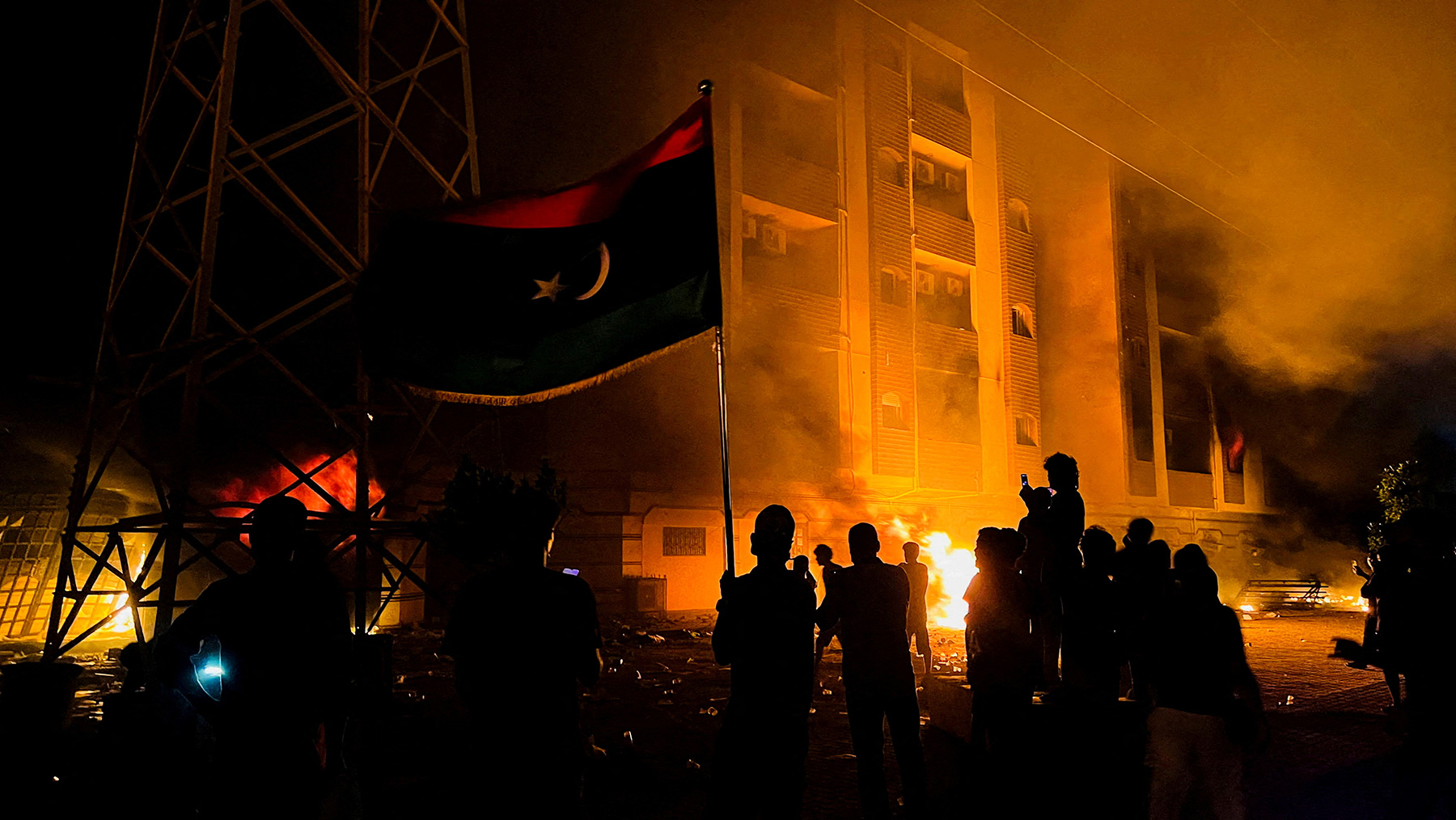The international community’s attention towards the Libyan crisis has diminished in recent times. The situation in Libya has lost its formative role in influencing the relations between the countries in the region. However, the conflict in Libya continues to be a key issue for North Africa.
The prospects of a political settlement in the Libyan conflict remains unclear and the root causes for the twelve-year-long crisis have not been eliminated. Particularly, the country maintains a high level of political and economic fragmentation within the Libyan society. The delayed effects of the Covid-19 pandemic, the global food crisis, and the global recession further exacerbate these problems. An additional factor that negatively impacts the situation in Libya is the conflict in Sudan, which broke out in April 2023.
In the near future, Libya will continue to be hotbed for instability in North Africa. Terrorism proves to be one of the most consequential problems of such instability. Libya currently has no unified army or security forces, which cultivates the most appealing atmosphere for new terrorist activities. The occasional confrontations between Tripoli and Tobruk significantly complicates the fight against the terrorism.
The international community’s attention towards the Libyan crisis has diminished in recent times. The situation in Libya has lost its formative role in influencing the relations between the countries in the region. However, the conflict in Libya continues to be a key issue for North Africa.
The prospects of a political settlement in the Libyan conflict remains unclear and the root causes for the twelve-year-long crisis have not been eliminated. Particularly, the country maintains a high level of political and economic fragmentation within the Libyan society. The delayed effects of the Covid-19 pandemic, the global food crisis, and the global recession further exacerbate these problems. An additional factor that negatively impacts the situation in Libya is the conflict in Sudan, which broke out in April 2023.
In the near future, Libya will continue to be hotbed for instability in North Africa. Terrorism proves to be one of the most consequential problems of such instability. Libya currently has no unified army or security forces, which cultivates the most appealing atmosphere for new terrorist activities. The occasional confrontations between Tripoli and Tobruk significantly complicates the fight against the terrorism.
Terrorist and extremist groups continue to plague Libya. Terrorists from ISIS, Al-Qaeda, Ansar al-Sharia, and other organizations based in Libya pose a threat to the entire region. The terrorists who were in Libya took advantage of the internal instability in Mali and Burkina Faso, and carried out various destabilizing attacks in these countries. Tunisia has also faced the problem of foreign militants infiltrating the county, bringing with them weapons into its territory. For example, in March 2016, ISIS fighters trained in Libya invaded Tunisia, and fought with Tunisian security forces for several days. Additionally, over the past few years, Libya-based terrorists have repeatedly carried out terrorist attacks in Egypt. According to Presidential Spokesman Ambassador Bassam Radi, Egyptian security forces have recently destroyed thousands of cars with terrorists trying to cross the Egypt-Libya border.
Another problem concerns Libyan combatants in neighboring countries. Particularly, a conflict broke out in Mali in 2012, which would later influence the 2019 clashes that took place in Chad, which also involved Libyan militias. Additionally, Sudanese mercenaries fought on the side of the Libyan National Army led by Khalifa Haftar. In 2021, there were 11 thousand mercenaries from Sudan in Libya. This means that there is a possibility that these Sudanese mercenaries will return to their country to take part in the hostilities.
Arms smuggling, cross-border drug trafficking and human trafficking have also negatively impacted the countries neighboring Libya. After the outbreak of the civil war in Libya in 2011, weapons from Libya spread to Egypt, Tunisia, Sudan and other African countries. In 2023, there were reports of forces linked to Khalifa Haftar that were selling fuel, as well as weapons, ammunition and medicine to paramilitary units of the Rapid Support Forces (RSF) in Sudan, who were then fighting against Sudan’s national army.
https://russiancouncil.ru
However, the impact of the situation in Libya on the subregion is not limited to just security issues. The Libyan conflict undermines the dynamics of the North African economies. In 2021, the UN Economic and Social Commission for Western Asia issued a report noting that the Libyan crisis is triggering conflicts in other countries in the continent, affecting the overall development of their economies. It also noted that the conflict was hampering sustainable development goals, in addition to negatively affecting regional economic integration. Economically speaking, the Libyan conflict has had the greatest impact on Tunisia, Egypt, and Sudan. This is particularly true, given that Libya had strong trade, economic and investment ties with those countries before the war. Algeria's economy has also been negatively affected by the crisis.
Thus, the Libyan crisis as an important factor contributing to regional instability. Its impact on the sub-region is primarily rooted in the treat of terrorism, as well as the involvement of Libyan combatants in other conflicts in North Africa. Additionally, illegal arms trade continues; its spread to Libya’s neighboring countries is a factor that affects the security of the entire continent. Furthermore, the Libyan conflict continues to negatively impact the development of the economies of Libya’s neighboring countries.
* An organization whose activities are banned in the Russian Federation.






